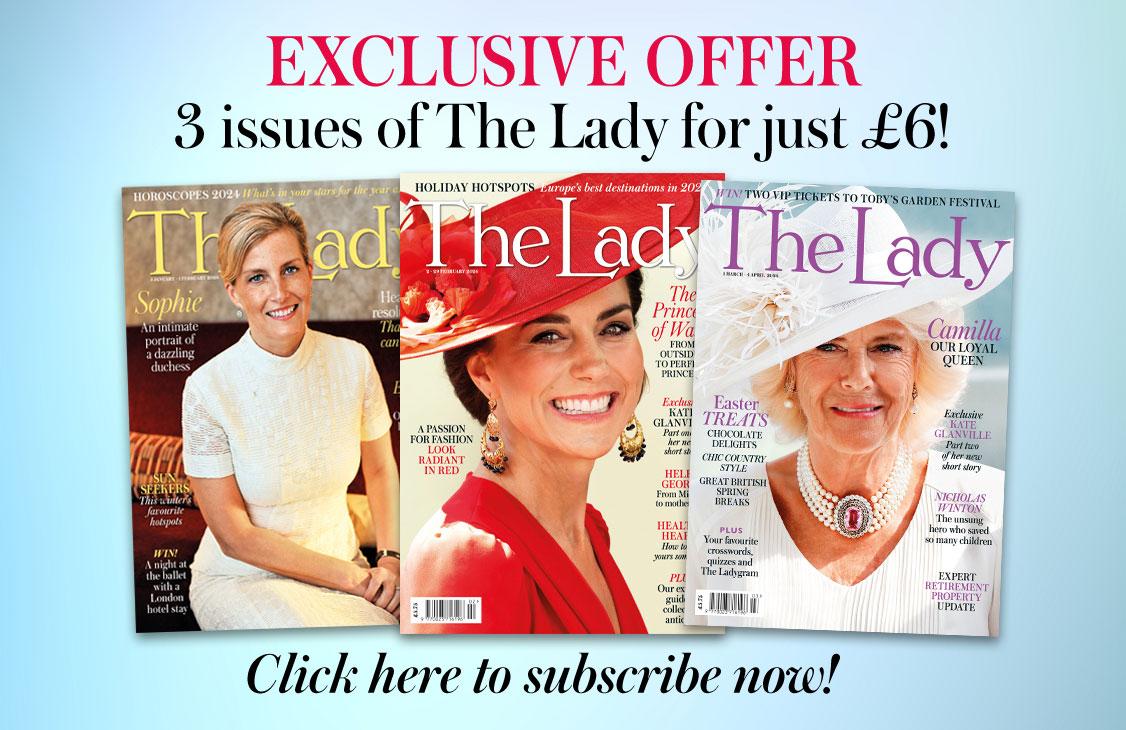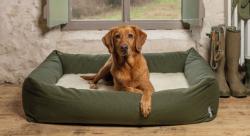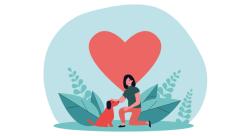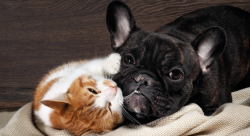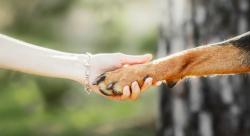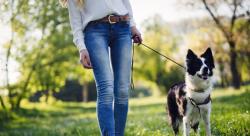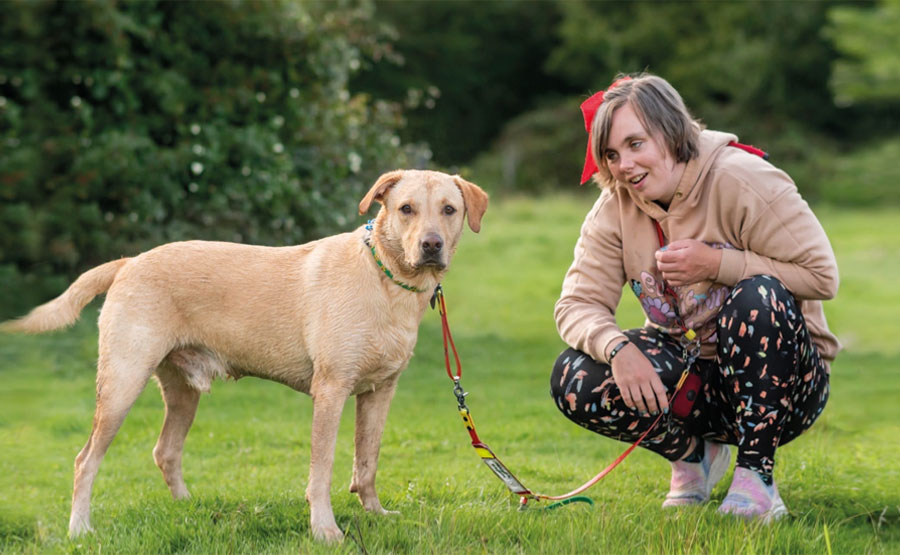
Assistance dogs are trained to carry out day-to-day tasks that most of take for granted - picking things up, fetching the post, opening and closing doors. Just as importantly though, they offer a sense of wellbeing and security that gives their owners confidence.
It is not just visually impaired people who are helped by assistance dogs - they help those with hearing difficulties, epilepsy, diabetes, mobility problems and more. There are also medical alert and response dogs, allergy detection dogs, autism and psychiatric assistance dogs.
Most are recognisable by a harness or jacket (even though the law doesn't require) and sometimes you can work out the type of assistance a dog is providing from the colour of its jacket.
Assistance dogs are not pets but are considered ‘auxilary aids'. Highly trained, they will not wander around freely but will sit or lie quietly on the floor next to their owner. Since they are also required to have regular veterinary treatments, the Chartered Institute of Environmental Health has determined they are unlikely to present a risk to hygiene and should be allowed access to restaurants, cafés, hotels and food shops.
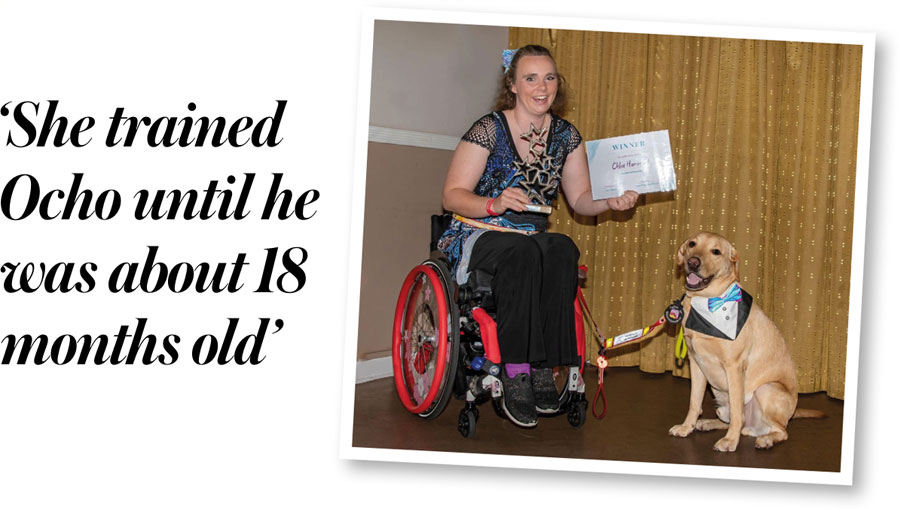
Chloe Hammond, 32, is one of them, and together with her beloved labrador Ocho she is half of a formidable team.
As a teenager Chloe began to develop several disabling conditions, including chronic fatigue syndrome, but her dream was to become a nurse. Determined not to allow her disabilities to set her back, she studied nursing and then worked at a children's intensive care unit. In 2018 her conditions worsened and she began to use a wheelchair. Then covid happened and Chloe had to stop working.
She then realised that with the right adaptations she might be able to return to nursing, and in 2021 Chloe bought Ocho as a pet. He was six weeks old and ‘he chose me', she says proudly. She took him home and trained him until he was about 18 months old, when he was accepted by the charity Dog A.I.D. The charity matched her with a local trainer for support, and tested Chloe and Ocho to ensure he was trained to the same standard as a guide dog and that Chloe knew how to work safely with him. Now three years old, Ocho reached fully trained status in May last year.
Today, Chloe is a complex-care community nurse based in North Somerset.
Her other mission is to make careers in health and social care more accessible to people with disabilities. She has won multiple awards, speaks at healthcare and disability events and has even appeared on ITV's This Morning.Ocho has now completed a further course and become a therapy dog.
In Chloe's view, it is the working environment that is disabling, and with the right support she says people with disabilities can shine. Assistance dogs are part of that vision, and Ocho is the proof.
◆ For more details about Chloe's work visit beacons.ai/watchochogrow
◆ For more information about assistance dogs visit dogaid.org.uk and assistancedogs.org.uk
